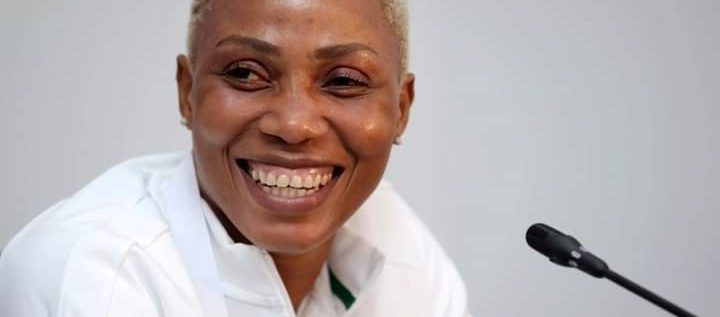France World Cup: Head Of FIFA referee Committee Talks On VAR, Penalty Controversy
![]()
FIFA Referee Committee boss, Pierluigi Collina addresses some questions surrounding refereeing at France 2019
Discusses the use of VAR and enforcement of recently amended Laws of the Game
Collina: “Refereeing performances in line with our expectations”
*With the FIFA Women’s World Cup France 2019 at its halfway point, everyone connected with the tournament has been taking stock and reflecting on the achievements and challenges thus far.*
The match officials and those overseeing them are no different, and Pierluigi Collina, Chairman of FIFA’s Refereeing Committee, has been addressing some of the questions and criticism that arose during the group phase.
*The group stage of this Women’s World Cup is now over. What are your impressions so far?*
Pierluigi Collina: Absolutely positive. The interest the FIFA Women’s World Cup 2019 has generated is very high, even in countries where women football is not very popular. If the objective was ‘Dare to Shine’, I can say it has been achieved.
*How happy are you with the performance of the referees so far?*
The overall assessment is in line with our expectations. The FIFA Refereeing department and in particular Kari Seitz, our project leader at France 2019, have worked very hard with the match officials during recent years. Twenty-four different teams of referees from all six confederations were appointed in the group phase and they showed a high level of commitment and good qualities.
*On 2 March, the International Football Association Board (IFAB) decided on a number of changes to the Laws of the Game. These changes came into force a few days before the FIFA Women’s World Cup in France and are therefore being used for the first time in a FIFA competition. Has everything gone well so far or have there been any misunderstandings or misinterpretations of these new Laws?*
Although the changes came into force on June 1st, all the 24 teams were informed immediately after the decision taken on March 2nd. Furthermore, they were given the permission to use the new Laws in the friendly matches they played between March and June. Lastly, upon arrival at their respective HQs, every team received a visit from a member of FIFA Refereeing’s department, who offered coaches and players any clarification they needed.
Therefore it’s not a surprise that these changes were well understood and received by everybody. The new goal kick procedure made the restart of play more fluid as well, and with the new substitution procedure time losses were reduced. Not having attackers in the defensive wall avoided some of the problems we faced in the past, and so far the behavior of team officials has been very good. And penalties are finally being taken in a correct way because, in the past, goalkeepers often saved them by being off the goal line.
*You mention penalty kicks, which are perhaps the most discussed and criticised topic in relation to the use of VAR. The rule itself has also been criticised. How can the concept be made clear to everyone?*
First of all I would remind everyone that, for a long time, goalkeepers had to keep both feet on the goal line until a penalty kick was taken. This made it very difficult for a goalkeeper to save a penalty and also for the referees to enforce what the law dictates. Having understood that, we discussed this matter with players and coaches and eventually decided to help goalkeepers by allowing them to have only one foot on the goal line instead of two. Since that change their job is definitely easier than before, and it is also easier for them to respect the current law than the previous version. Then, if a law exists, referees must enforce it – particularly when tools like VAR or GLT are available.
For factual decisions, the number of centimetres doesn’t matter. If a ball is over the goal line by few centimetres, a goal must be still awarded. And if a foul is committed within the penalty area by few centimetres, a penalty kick must be given. It is the same for offside as there is not a ‘small’ or a ‘big’ offside – there is simply an offside. Today referees cannot justify a mistake by saying they couldn’t see because VAR and GLT are there to support their decision-making.
Therefore if a goalkeeper commits an offence like encroaching before the penalty kick is taken, the VAR cannot do anything but intervene and inform the referee that the penalty kick must be retaken and the goalkeeper cautioned.
It is a different situation with the encroachment of other players that remain under the control of the referee. VAR cannot intervene there unless the players who encroached become directly involved in play – if the penalty kick rebounds from the goalpost, crossbar or goalkeeper. As I already said, all the teams were duly informed at the beginning of March and goalkeepers had enough time to get used to it. And as mentioned, the recent change actually makes the goalkeeper’s job easier than it was before.
*And so the referees are simply doing their job by enforcing this law?*
Enforcing the laws is the referees’ task and they cannot refrain from doing it. However, I have to say referees are doing something extra too as before every penalty kick is taken they are providing a very clear reminder to the goalkeeper what she can do and what she cannot.
*But if the referees are to follow this law, what will happen if a game has to be decided by a penalty shootout after 120 minutes? Is there the risk that a goalkeeper will be red carded if she encroaches more than once?*
FIFA has requested and received from IFAB a temporary dispensation concerning the kicks from the penalty mark – in other words, the penalties taken at the end of the match to determine the result. The caution for a goalkeeper who commits an offence was introduced in the laws as a deterrent.
*But what better deterrent than the VAR?*
It’s not possible that a goalkeeper moves both her feet off the goal line without being noticed. In addition we felt that the risk for a second caution was too high considering the number of penalties that are taken.
Therefore during the knockout phase of the FIFA Women’s World Cup 2019, when a match will be decided by penalties, an encroachment of the goalkeeper will result in the retaking of the penalty but not a caution for the keeper. After the end of the tournament the disciplinary sanction for offences committed by the goalkeeper at penalties might be further discussed within IFAB’s panels.
*Let’s speak about VAR in general. How happy are you with its use here in France and what, if any, have been the challenges?*
I am very pleased that VAR worked very well so far. Our referees started only after the FIFA World Cup 2018 to practise with this tool and they went through an intensive preparation process to be ready for the FIFA Women’s World Cup. I have to admit though that a few mistakes were committed, and although this is understandable, it should not have happened, and I regret that.
*What are your expectations for the knockout stage?*
Referees will continue to work very hard to be ready for the next rounds of the Women’s World Cup, when matches will become more important and difficult. I am confident that they will succeed.
FIFA SOURCED




